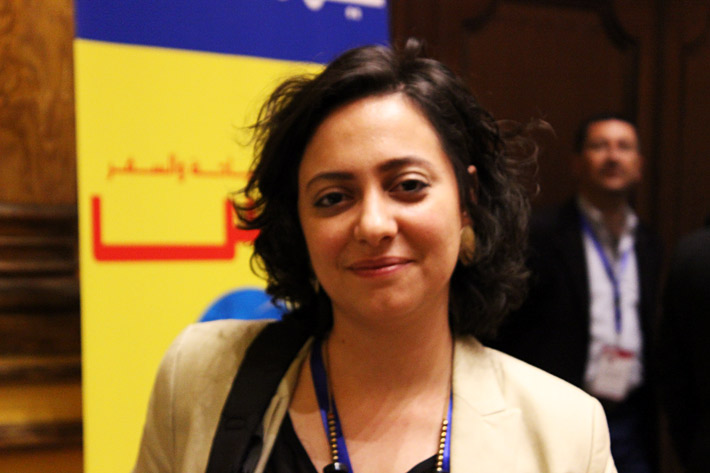AMMAN – I met Razan Ghazzawi at a conference about media freedom in the Arab world.

She, like me, was presenting in a panel discussion at the Forum for Media Freedom Defenders in the Arab World in Amman, Jordan.
At the conference, participants discussed issues like the challenges reporters face in the region, from difficulties in getting government information to violent reprisals for their reporting.
I felt a little out of place at the conference – reporting in Canada is a far easier job. For example, I worry about libel and uncommunicative officials – Middle Eastern journalists do, too, but they also worry about imprisonment and worse.
Ghazzawi, 34, is an activist and blogger, born in the U.S. though she says she never lived there, who writes about the conflict in Syria from Damascus and elsewhere. I spoke to her briefly at the conference about her blog.
She started blogging, she told me, in 2006. She eventually started writing about human rights issues in Syria. At first, she said, she used a pseudonym. Then, following the fashion of Syrian bloggers around 2008, she decided to use her own name. It was a conscious decision, she said, and one she planned carefully, saying that she knows the regime very well.
To protect herself, she writes in English. “The security forces in Syria don’t read English,” she said. “A lot of Syrian bloggers who write in Arabic are in much greater danger than I am.”
Related: Activists say death toll in Syria’s war tops 160,000
Reporting in Syria can have serious consequences. According to the Committee to Protect Journalists, an organization that advocates for press freedom, 28 journalists were killed in Syria in 2013. They were either deliberately targeted or were killed while working in a combat zone or on a dangerous assignment.
Bloggers who write things that the regime doesn’t like are sometimes detained – as Ghazzawi was herself, twice: once while travelling to attend a conference for media freedom in Jordan in 2011, and again in 2012 in a raid on the Syrian Center for Media and Freedom of Expression, where she was working.
She chose to blog as a way to express herself, she told me. “Freedom of speech in the region, you’re not born with it,” she said. “You’re living with dictatorship.”
“So, it’s about you blogging yourself. You’re blogging your own personal feelings and individuality in a society that decides that you’re a mass. The regime does not see us as people. They see us as a mass – people versus the regime.”
She has also reported on news events in Syria, chronicling a day of fighting in Damascus in 2012, for example.
The Western media, she said, is presenting a dehumanized version of the conflict.
“I feel that the West has a lot of experience in telling stories,” she told me. “For example, 9/11. I can now think and share and relate to the pain of 9/11 because of stories, because of how people reported about it. The lives of people, who were they, their faces.”
“But this is not how they deal with our pain. It’s numbers, it’s bodies, it’s people cutting heads. It’s very dehumanizing. It feels like we’re not humans being killed, we’re just Third World people being killed.”
In her own writing, Ghazzawi is very human.
She often expresses her own feelings about political events, and calls attention to the individual people affected by the conflict.
In one post, called “And You’re Still Dead,” she reflects on the loss of a friend and fellow activist, filmmaker Bassel Shehada, who she writes was killed in a mortar attack in Homs.
“Bassel, I don’t get how you’re still dead. You’re one of my best friends, and it’s not getting easier, and time is not healing shit, and thinking about you still makes me cry,” she writes.
“No one will read this long post, right? But it’s for you Bassel. Be patient with me, I still can’t believe you’re dead.”


Comments